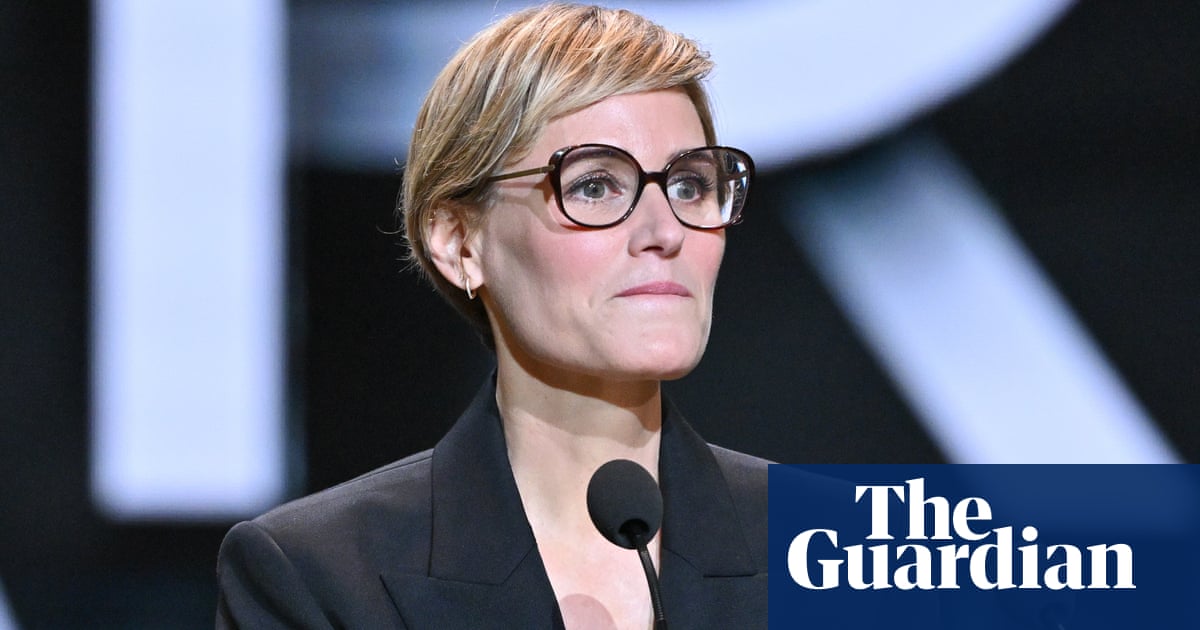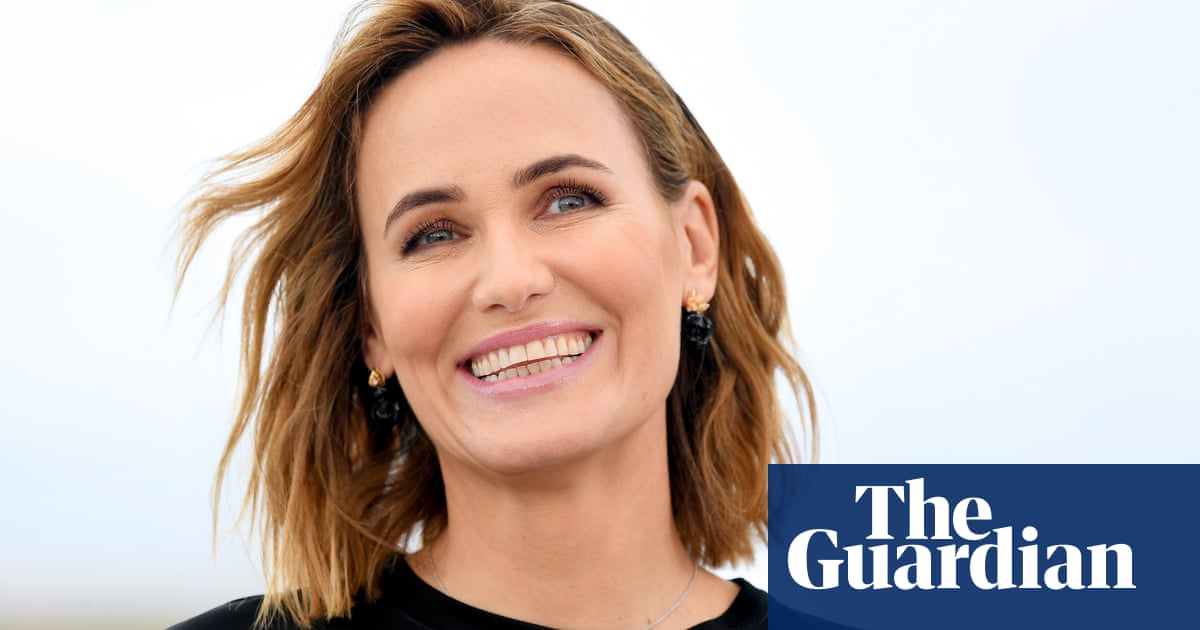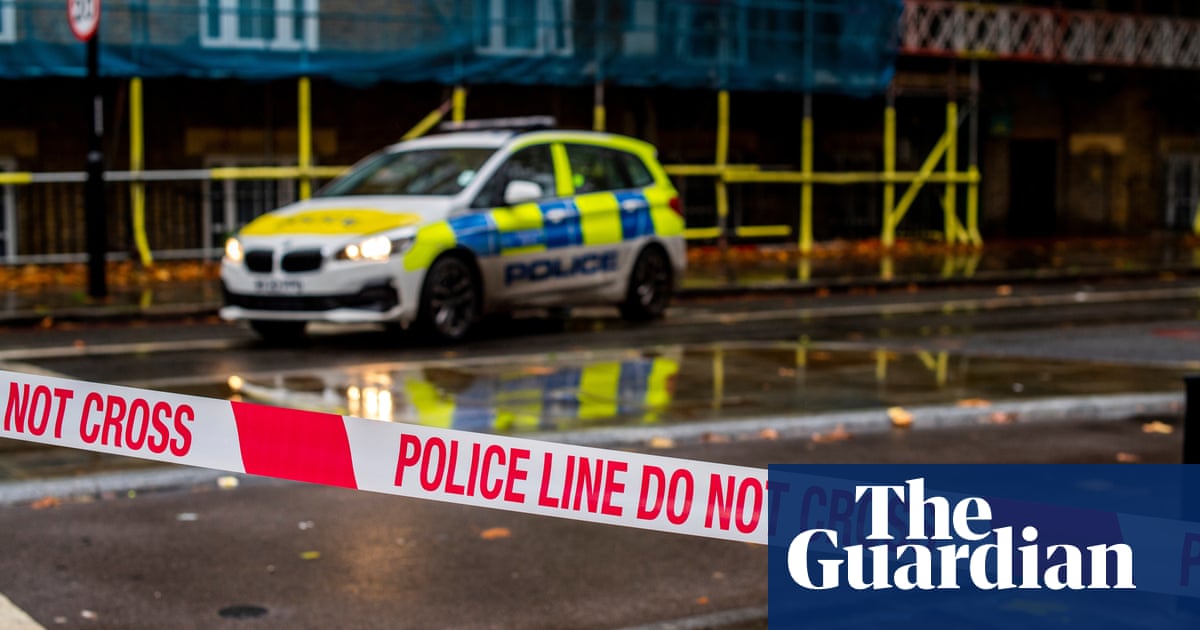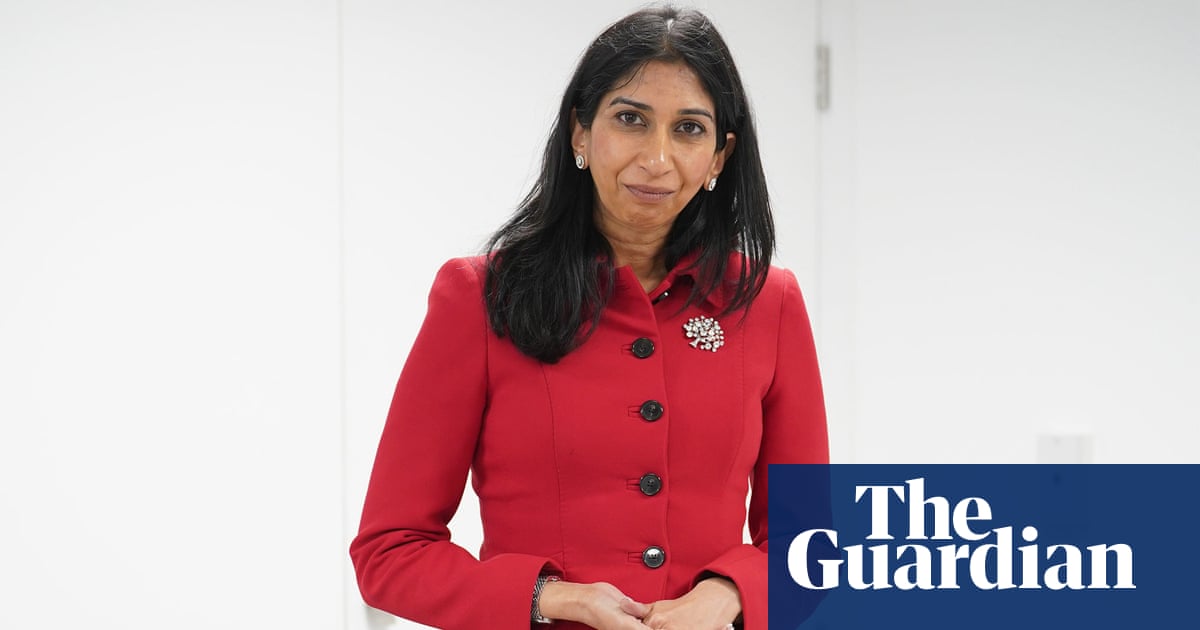
Judith Godrèche has urged the French film industry to break its omertà on sexual abuse in an unprecedented address to the country’s most prestigious awards ceremony on Friday evening.
Godrèche, who says she was groomed and raped as a teenager by an acclaimed director, received a standing ovation as she took the stage at the Césars – the French equivalent of the Oscars.
Visibly nervous, she told the audience she was speaking to them “face to face, eye to eye” and urged them to speak out about abusive, powerful men in the film world even if it meant risking their careers.
“For some time now the word has been out; the image of our idealised fathers has flayed, power seems to be wavering. Is it possible that we can look the truth in the eye, take responsibility, to be the actors in a world that is being called into question?” she said.
“I know it’s scary: losing grants, losing roles, losing your job. I’m scared too. I left school at 15, I don’t have a high school diploma, nothing. It would be complicated to be blacklisted from everything. It wouldn’t be fun.”
She added: “Silence has been my driving force for 30 years. Why allow this art we love so much, this art that binds us together, to be used as a cover for the illicit trafficking of young girls? It’s in your hands. We are in the spotlight at the dawn of a new day. We can decide that men accused of rape should not be allowed to call the shots in the cinema.
“The world is watching us … we’re lucky enough to live in a country where it seems that freedom exists. So, with the same moral strength we use to create, let us have the courage to say out loud what we know in silence.
“Let us not embody heroines on screen, only to find ourselves hiding in the woods in real life; let us not embody revolutionary or humanist heroes, only to wake up in the morning knowing that a director has abused a young actress and say nothing.”
Allowing Godrèche to address the César awards’ audience is the first time the French film industry has made such a stand against sexual abuse allegations. The #MeToo movement that began in 2017 when Hollywood director Harvey Weinstein was accused – and later convicted – of sexual abuse and rape has made slow progress in France.
Women coming forward with stories of sexual abuse from the past, including rape, have often faced a pushback. In December, the French president, Emmanuel Macron, defended the actor Gérard Depardieu, who faces multiple allegations of sexual assault and one of rape, suggesting he was the victim of what amounted to a “witch-hunt”. Depardieu has denied the allegations.
Godrèche, 51, has accused directors Benoît Jacquot and Jacques Doillon, the former partner of the late singer and actor Jane Birkin, of rape and sexual assault when she was a teenager.
She claims Jacquot, an acclaimed arthouse director, groomed her in full sight of the French film industry and journalists when they became a couple after he cast her in his 1987 film Les mendiants (The Beggars). At the time she was 14 and he 39.
The actor has also accused Doillon of requiring her to perform 45 takes of an unscripted sex scene with him when she was a 15-year-old during the shooting of his 1989 film La fille de 15 ans (The 15 Year Old Girl).
After Godrèche told her story in the French press, other actors came forward with allegations of sexual assault and harassment.
Jacquot has denied the accusations and claimed all sexual relations were consenting. Doillon has also denied the accusations, describing them as “lies”.
In 2018, after #MeToo took off across the Atlantic, 99 prominent French women – including screen legend Catherine Deneuve – signed a letter accusing the campaign of intolerance and puritanism and arguing for the right of men to repeatedly hit on someone even when unwelcome.
Two years later, actor Adèle Haenel walked out of the 2020 César ceremony in protest at Roman Polanski, who is still wanted in the US on a charge of the statutory rape of a 13-year-old girl, being given a best director award.
Last year, a row erupted after the César jury came up with an all-male nomination list for best director award and only one film made by a woman was nominated in the best film category.
Godrèche finished her address by telling the audience: “You have to watch out for little girls. They hit the bottom of the pool, bump and hurt themselves, but bounce right back … and dream of a possible revolution,” prompting applause and a second standing ovation.












